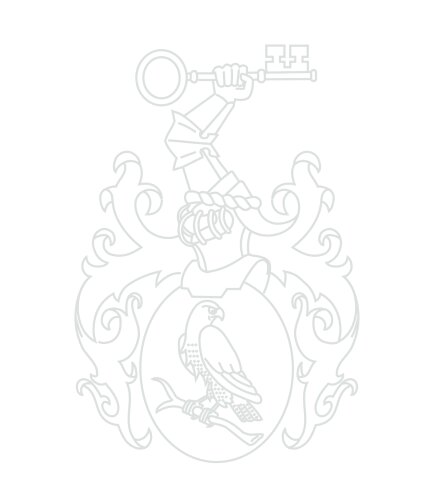Best Criminal Litigation Lawyers in Denmark
Share your needs with us, get contacted by law firms.
Free. Takes 2 min.
Or refine your search by selecting a city:
List of the best lawyers in Denmark
About Criminal Litigation Law in Denmark
Criminal litigation in Denmark involves the legal process of addressing offenses accused by the state or a public authority against individuals or organizations. The Danish criminal justice system is designed to uphold the rule of law, ensuring fairness and justice. It handles all phases of criminal proceedings, from investigation and trial to sentencing and potential appeals. The principles recognized in Danish criminal law include legality, proportionality, and the presumption of innocence until proven guilty.
Why You May Need a Lawyer
There are various situations where individuals may require legal assistance in criminal litigation. Some common instances include being accused of a crime, seeking defense against charges, wanting to understand your rights and potential penalties, or if you're a victim seeking justice. Legal advice is crucial in navigating the complexities of the legal system, ensuring fair treatment, building a strong defense case, and possibly mitigating penalties or negotiating plea deals.
Local Laws Overview
Danish criminal law is formulated under the Penal Code, which outlines the offenses punishable in Denmark and their respective penalties. Key aspects to note include the categorization of offenses-such as felonies and misdemeanors-understanding procedural rights during trials, the role of police in investigations, and the evidentiary standards required for conviction. The Danish legal system also provides options for alternative resolutions, such as restorative justice programs.
Frequently Asked Questions
1. What is the role of a defense lawyer in Denmark?
A defense lawyer represents individuals accused of a crime, providing legal counsel, building a defense strategy, and advocating on behalf of the accused during court proceedings.
2. How does the Danish legal system ensure a fair trial?
The Danish legal system upholds the principle of fair trial through mechanisms such as the right to legal representation, open court hearings, and the ability to appeal a decision to a higher court.
3. Can a non-citizen be tried under Danish criminal law?
Yes, non-citizens can be tried under Danish criminal law if they commit offenses within Danish territory or if Danish law extends to particular situations involving Danish interests.
4. What are the possible penalties for criminal offenses in Denmark?
Penalties can vary significantly, ranging from fines and community service to imprisonment, depending on the severity of the offense and circumstances surrounding the case.
5. How can a lawyer help if I'm a victim of a crime?
Lawyers can assist victims by guiding them on their rights, helping file charges, representing them in court, and seeking compensation or damages if applicable.
6. What should I do if I'm arrested in Denmark?
If arrested, it is vital to remain calm, exercise your right to remain silent, and ask for a lawyer immediately to ensure your rights are protected during questioning.
7. How do plea deals work in Denmark?
Plea deals involve negotiations where the accused may plead guilty to a lesser charge in exchange for a reduced sentence, subject to court approval.
8. Can juvenile offenders be tried and sentenced in Denmark?
Yes, juveniles can be tried, but there are specific procedures and institutions for handling juvenile cases, focusing on rehabilitation over punishment.
9. What is an appeal, and how do I initiate one?
An appeal is a request to a higher court to review the decision of a lower court. To initiate an appeal, a notice must be filed within a specific time frame post-judgment.
10. Are there alternative dispute resolutions available?
Denmark provides alternative resolution methods such as mediation and restorative justice, which are non-court-based approaches to resolve specific disputes.
Additional Resources
The following resources can be invaluable for individuals seeking guidance in criminal litigation:
- The Danish Courts: Official site for information on court processes and legal resources.
- Legal Aid Denmark: Provides assistance to those who qualify based on income and case type.
- The Ministry of Justice: Offers insights into legislative measures and the justice system in Denmark.
- Danish Bar and Law Society: A resource for finding qualified lawyers and understanding legal standards in Denmark.
Next Steps
If you require legal assistance in criminal litigation, it's advisable to contact a criminal defense lawyer experienced in Danish law. You can start by consulting with legal aid services or using directories from reputable organizations like the Danish Bar and Law Society to find a qualified lawyer. Remember to prepare any relevant documents or information about your case before seeking legal advice to facilitate an effective consultation.
Lawzana helps you find the best lawyers and law firms in Denmark through a curated and pre-screened list of qualified legal professionals. Our platform offers rankings and detailed profiles of attorneys and law firms, allowing you to compare based on practice areas, including Criminal Litigation, experience, and client feedback.
Each profile includes a description of the firm's areas of practice, client reviews, team members and partners, year of establishment, spoken languages, office locations, contact information, social media presence, and any published articles or resources. Most firms on our platform speak English and are experienced in both local and international legal matters.
Get a quote from top-rated law firms in Denmark — quickly, securely, and without unnecessary hassle.
Disclaimer:
The information provided on this page is for general informational purposes only and does not constitute legal advice. While we strive to ensure the accuracy and relevance of the content, legal information may change over time, and interpretations of the law can vary. You should always consult with a qualified legal professional for advice specific to your situation.
We disclaim all liability for actions taken or not taken based on the content of this page. If you believe any information is incorrect or outdated, please contact us, and we will review and update it where appropriate.
Browse criminal litigation law firms by city in Denmark
Refine your search by selecting a city.
















